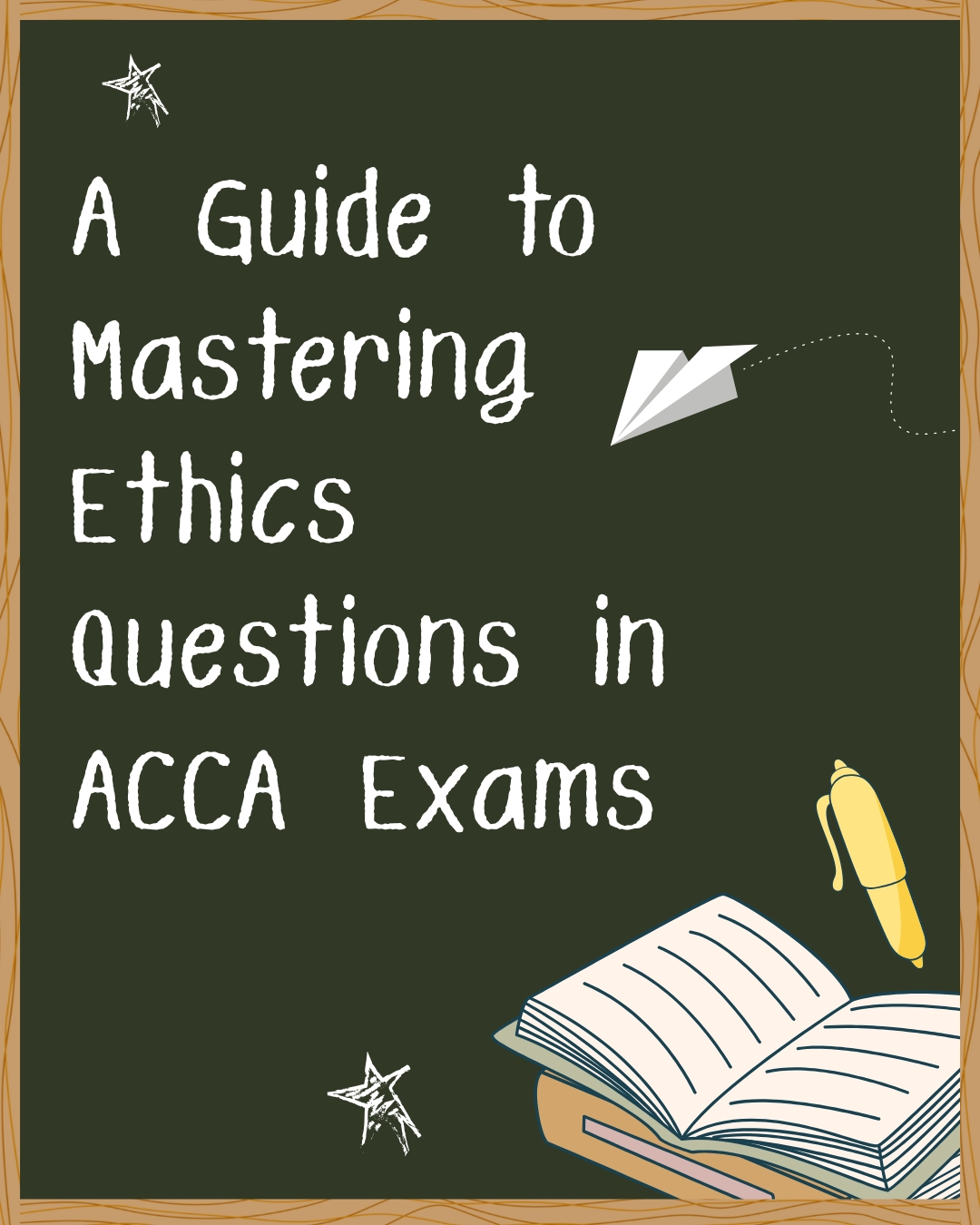The Crucial Role of Ethics in ACCA Exams
ACCA exams go far beyond testing accounting theories and principles; they deeply evaluate your ethical judgment and decision-making abilities. As a future accounting professional, you will frequently encounter situations where strong ethics matter just as much as technical expertise. ACCA highlights this priority through its dedicated Professional Ethics Module, reinforcing the importance of ethics in shaping trustworthy global accountants.
Dive into the Professional Ethics Module
Mastering ACCA ethics begins with thoroughly studying the Professional Ethics Module. This module forms the foundation of ethical understanding and covers essential principles such as:
- Integrity
- Objectivity
- Professional competence and due care
- Confidentiality
- Professional behavior
Spend dedicated time reviewing these concepts. A solid understanding of these core values is crucial when answering real-life ethical scenarios in your exams.
Develop a Structured Approach
When tackling an ethics question in ACCA exams, a structured and logical approach is essential. Here’s how to proceed:
- 1. Identify key elements of the scenario
- Who are the parties involved?
- What ethical principles are at stake?
- Are there any conflicts of interest?
2. Analyze the situation step-by-step
Consider the perspectives of all stakeholders.
Evaluate the ethical implications of different actions.
Assess the short-term and long-term consequences.
A structured approach ensures your response is clear, comprehensive, and reflective of strong ethical reasoning.
Apply Ethical Frameworks
ACCA encourages the application of established ethical frameworks to support decision-making. Be familiar with:
- 1. ACCA’s Code of Ethics and Conduct: A guide for ethical behavior across the accounting profession. Using this code in your answers demonstrates your alignment with professional expectations.
- 2. Principles-Based Approach: This focuses on applying fundamental ethical principles to real-world dilemmas. It emphasizes sound judgment and professional skepticism
- 3. Threats and Safeguards Framework
This helps you:- Identify threats to ethical behavior
- Evaluate the significance of these threats
- Apply safeguards to eliminate or reduce them
Incorporating these frameworks shows examiners that you understand how to navigate ethical challenges using globally accepted standards.
Practice with Past Exam Questions
Ethics questions, like any other part of the ACCA syllabus, require consistent practice. Make past exam questions your best friend.
- Practice under timed conditions
- Review examiner feedback
- Understand common pitfalls
- Analyze model answers
The more scenarios you work through, the more confident you become in applying ethical principles logically and efficiently.
Stay Updated on Ethical Standards
Ethical standards evolve with business trends, regulatory updates, and global expectations. Stay informed by:
- Monitoring updates to ACCA’s Code of Ethics
- Reviewing ACCA technical articles
- Reading professional insights on emerging ethical issues
Updated knowledge ensures your exam responses reflect current professional standards.
Engage with Different Opinions
Ethics often involves subjective interpretation, making discussion invaluable.
- Form study groups
- Join online ACCA forums
- Debate ethical scenarios with peers
Hearing diverse viewpoints strengthens your understanding and helps you approach ethical dilemmas from multiple angles.
A Small Guide to Answer Your Ethics Questions
Whenever you face an ethics question, follow this quick checklist:
- ✓ Identify the ethical issue
- ✓ Link it to relevant ACCA ethical principles
- ✓ Apply an appropriate ethical framework
- ✓ Evaluate threats and possible safeguards
- ✓ Consider stakeholder implications
- ✓ Recommend the most ethical course of action with justification
Conclusion
Mastering ethics questions in ACCA exams is essential not only for passing exams but also for building a respected and ethically grounded career in accounting. By immersing yourself in the Professional Ethics Module, using structured approaches, applying ethical frameworks, practicing past questions, staying updated, and engaging with peers, you equip yourself to handle the ethical complexities of the accounting world.
Ethics lies at the heart of the ACCA qualification. As you progress in your journey, embrace these challenges and commit to making ethical, responsible, and professional decisions, both in the exam hall and throughout your career.
Recent posts
Categories
Book Your Personalised Career Consultation Today
Error: Contact form not found.



